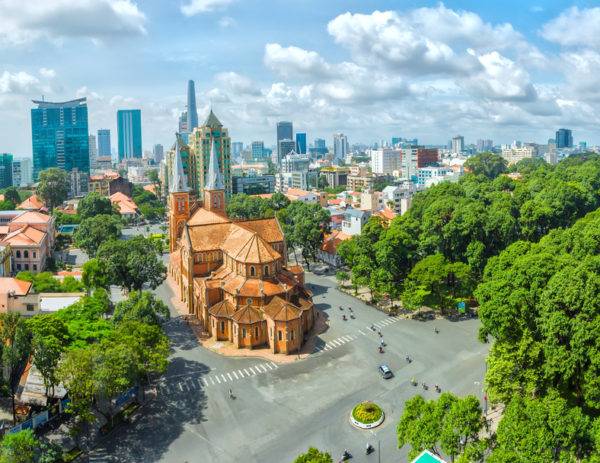Vietnam’s commercial capital, Ho Chi Minh City (HCM), is gearing up to join the ranks of the world’s smart cities.
Vietnam News reported recently announced modernization plans by leaders of the city otherwise known as Saigon. Government representatives said the new smart city program aims to reduce pollution in HCM, improve its economy and boost the quality of life for its citizens.
This comes amid reports indicating that, despite increased global smart city revenues, few big projects are addressing core urban problems.
A new steering committee was announced that will focus exclusively on developing a roadmap that will transform HCM into a smart city.
As is common with the communist regime, government leaders stressed the participation of rank and file citizens in such society-building projects.
“With a smart city, residents will play a critical role in supervising Government activities,” said Nguyễn Thiện Nhân, Fatherland Front Central Committee chairman.
He continued by saying that the three core parts of HCM’s smart city plan will be complete in the next three to five years.
These main components are: smart services such as education, healthcare and traffic; enhanced citizen participation in city life; and a common database plan.
The database will allow citizens, businesses, investors and managers to access information about HCM’s socio-economic development policies.
HCM targeting inefficiencies first
Among the new committee’s first targets is reducing inefficiencies and waste by integrating the city’s IT infrastructure, according to government officials.
They cited the thousands of traffic and security cameras that will be linked together under the new smart city regime.
Another area of focus is continuing the development of HCM’s smart traffic management center that features enhanced bus system management and is scheduled to be completed by 2018.
Furthering its smart traffic management, the city is looking to include cameras and sensors to collect real-time information about traffic density so transportation agencies can rapidly react to issues. As well, it is looking to implement connected systems to better run transactions related to collections of tolls and parking-lot fees.
HCM is also looking to harness sensor data in order to better manage the city’s waste treatment and power usage. Specifically, it will ramp up its environmental management capabilities to include data on waste, water, air and noise parameters that would be frequently updated.


















